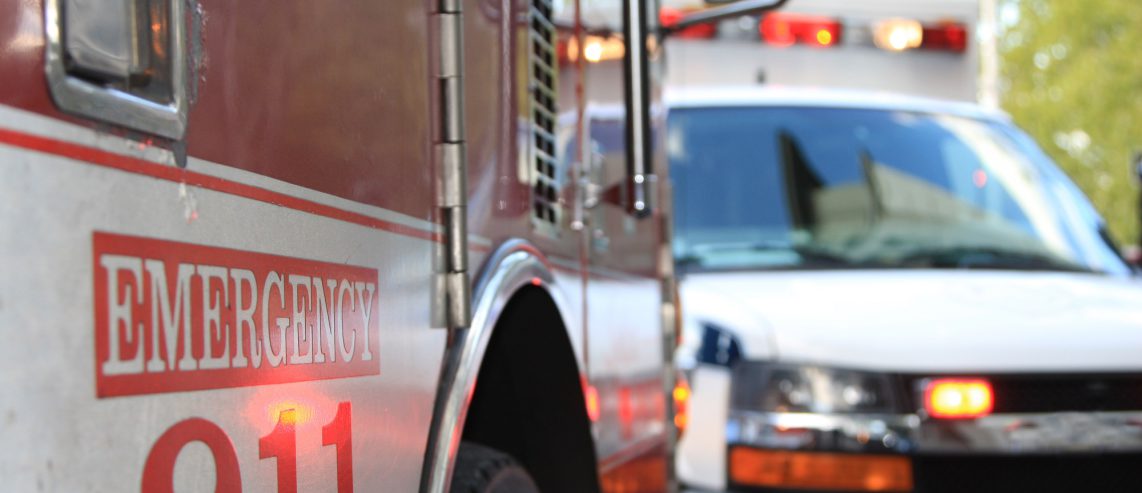According to the American Heart Association, someone in the U. S. has a heart attack approximately every 40 seconds. Yet more than 90% survive, recover, and go back to their daily routines and normal lives.
“It’s important to act quickly to help give the person the best chance of recovering,” says Christopher B. Haas, DO, an interventional cardiologist and medical director of the Heart and Vascular Institute at UPMC Western Maryland. “But it’s equally important to be able to recognize the symptoms of a heart attack and to understand that symptoms of a heart attack can differ between men and women.”
Just like all hearts, all heart attacks are different. But by learning some basic facts, you can recognize the signs and help yourself or someone else.
Never Miss a Beat!
Subscribe to Our HealthBeat Newsletter!
Thank you for subscribing!
You can now select the specific newsletters you'd like to receive.
You are already subscribed.
Subscribe to more newsletters in our email preference center.
Sorry, an error occurred. Please try again later.
Get Healthy Tips Sent to Your Phone!
Signs and Symptoms of Heart Attack
The main symptom of a heart attack is chest pain/pressure/discomfort that lasts a few minutes or more.
Dr. Haas says it is important to point out that although chest pain is an important symptom for women to recognize, they are less likely than men to feel it, and often only have some of the other symptoms listed below. Men may also have these, as well.
Other common heart attack symptoms can include:
- Shortness of breath.
- Nausea.
- Vomiting.
- Dizziness.
- Sweating.
- Pressure or pain in the chest or back that feels like anxiety.
“Even if someone has had a heart attack before, their symptoms might be different if they have another one,” says Dr. Haas. “Not all heart attacks are the same, and it’s always best to be safe and call 911.”
What to Do During a Heart Attack
If you think someone is having a heart attack, do not wait until more symptoms appear. A heart attack is a medical emergency and can be deadly. The sooner a person gets treatment, the better chance they have at survival and recovery.
- Call 911 immediately. Don’t try to drive someone to the hospital yourself. Paramedics are trained to treat people on the way to the hospital and offer the fastest way to get there.
- Have the person sit down or lie down to rest. Help them stay as calm as possible as anxiety will increase their adrenaline, which can worsen the heart attack.
- Give them an aspirin. Chewing a 325 mg aspirin or four 81 mg (baby) aspirins can help reduce the risk of serious complications of a heart attack. Do this only if they have the classic heart attack symptom of chest pain/discomfort/pressure, with or without the additional symptoms. If they have only the other symptoms listed above but no chest pain/discomfort/pressure, wait for the ambulance to arrive and emergency medical services will decide if aspirin is appropriate.
- Give them nitroglycerin. Only if they have a prescription for it, and only as directed by their doctor.
- Begin CPR. If the person is unconscious or unresponsive, you may be told by the 911 dispatcher to begin CPR. “If you do not know how to give CPR, the dispatcher should be able to give you the correct steps to follow until help arrives,” adds Dr. Haas.
For more information about heart attack risk, consult your primary care physician or visit the UPMC Heart and Vascular Institute website.
Editor's Note: This article was originally published on , and was last reviewed on .
About Heart and Vascular Institute
The UPMC Heart and Vascular Institute has long been a leader in cardiovascular care, with a rich history in clinical research and innovation. As one of the first heart transplant centers in the country and as the developer of one of the first heart-assist devices, UPMC has contributed to advancing the field of cardiovascular medicine. We strive to provide the most advanced, cutting-edge care for our patients, treating both common and complex conditions. We also offer services that seek to improve the health of our communities, including heart screenings, free clinics, and heart health education. Find an expert near you.
